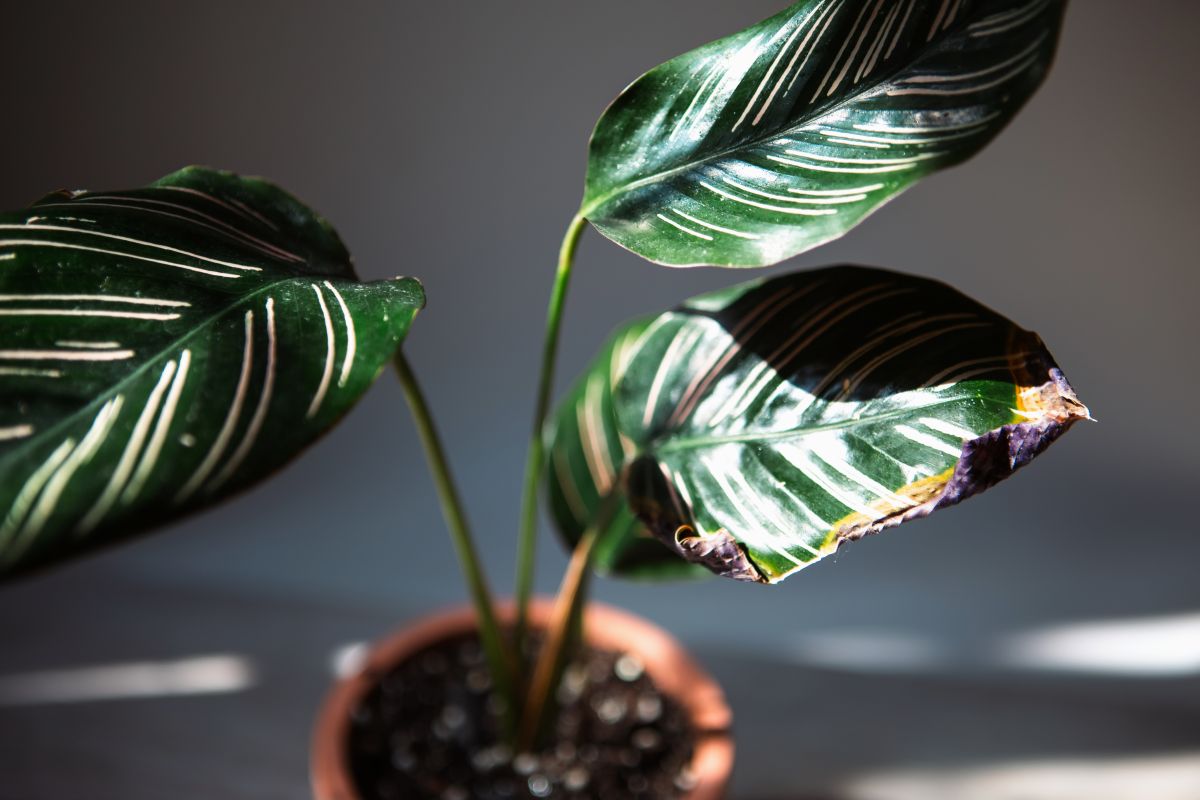The Monstera Thai Constellation is a peculiar plant. It is a hybrid species that originated from the Monstera deliciosa. It is grown from the tissue culture of the deliciosa and was first invented in Thailand.

Thai constellation plants are rare species. It features marble-like, glossy green foliage with stunning fenestrations. They also are variegated with creamy white splatters. Unlike the variegated monstera, Thai monstera plant has stable variegation. This means they won’t revert to green as they age.
Be careful with the exotic Monstera variety. They can be toxic when ingested, so keep them away from children or pets.
| Botanical Name | Monstera deliciosa Thai constellation |
| Common Names | Monstera Thai Constellation, Thai Monstera |
| Origin | Thailand |
| Family | Araceae |
| Plant Type | Exotic, perennial plant |
| Full Size | Can reach a height of 3 feet |
| Sun Exposure | Bright but indirect sunlight |
| Soil Type | Well-draining, aroid mix |
| Toxicity | Yes, can be toxic to both pets and people |
Monstera Thai Constellation Care
Monstera thai constellations are unlike all types of monstera plants. They are less tolerant of drying up but are more sensitive to light. They can be easy to care for, but you need a basic
understanding of their requirements.
Monstera Thai Constellation Lighting Requirements
This exotic monstera variety is more selective of light than the deliciosa. It requires at least 6 hours of direct sunlight each day. This direct sunlight should be bright and sufficient for the plant.
Because it was created in a lab. The Thai constellation would require twice more light to grow well. But never expose it to direct sunlight. Their foliage could become scorched. They prefer low-light situations to long exposure to direct sunlight.
When growing them in low light, note that they would have a slower growth rate. Their variegation might form, but at a much slower rate. You can also consider getting some artificial growth light for your Thai constellation.
Watering Requirements For The Thai Constellation

Avoid overwatering the variegated monstera thai constellation. They are prone to root rot due to fungal buildup from sitting in soggy soil. They can survive a little neglect, but don’t go 2 days without watering the plant.
Water them once a week using tepid, dechlorinated water. This means avoiding tap water that contains chlorine. Instead, use a filtration system to remove the chlorine. Or use rainwater, it is ideal.
Watering should be done in the hot summer season. During colder seasons like winter, limit watering to once a month at most.
When watering, aim for moist soil. To do this use a moisture meter to measure the moisture level of the soil. You can also try feeling the soil with your finger. If the topmost part of the soil feels dry, you can then water the plant.
Monstera Thai Constellation Soil Requirements
Regular potting soil mixes would do more harm to the Thai plant. Instead, use a well-draining potting mix that is aroid enough for proper growth. Before then, you would need a pot with enough drainage holes for easy passage of water.
Your potting mix should contain quality potting soil mixed with perlite. To enable it to retain moisture, add some sphagnum moss or tree bark chunks. Avoid the use of organic compost, this could lead to root rot.
PH level should be kept between neural and a little acidic. A range between 6.5 and 7.0 would be perfect.
Monstera Thai Constellation Temperature and Humidity Requirements
Monsteras in general love high temperature and humidity levels. Grow them in a temperature range between 65 to 85 degrees Fahrenheit. Anything lower than 60 degrees Fahrenheit would be harmful.
Keep them away from vents or Air Conditioners. And provide adequate protection from frost or cold climates.
Humidity levels should also be kept high. A range between 60% to 80% would be most ideal for the potted Monstera variety. In low-humid areas, consider misting often. You can also opt for the use of a Humidifier.
Monstera Thai Constellation Fertilizer Use

The thai plant is a slow feeder. Do not overwhelm it with fertilizer. Instead, fertilize them once a month using liquid-soluble fertilizers. The fertilizer should be diluted to about half of its initial strength.
Monstera Thai Constellation Propagation
You can propagate the monstera thai through stem cuttings. This is the most effective way. Always sterilize all cutting tools before using them. And don’t forget to wear protective gloves before doing so.
Common Health Problems of the Monstera Thai Constellation
- Root rot
- Scorched leaves
- Brown tips
- Scales
- Thrips
- Mealybugs
- Spider mites
Frequently Asked Questions
Depending on the type they range from $25 to $60.
For most monstera species. Do not go below 50 degrees Fahrenheit.
They do have an upward growth pattern. But they oftentimes don’t need to climb.
Repotting should be done every 2 years. They have an average growth speed.
The monstera obliqua is a rare variety of the monstera genus.





